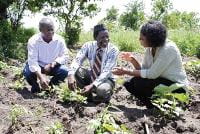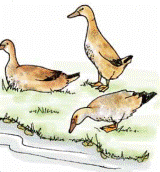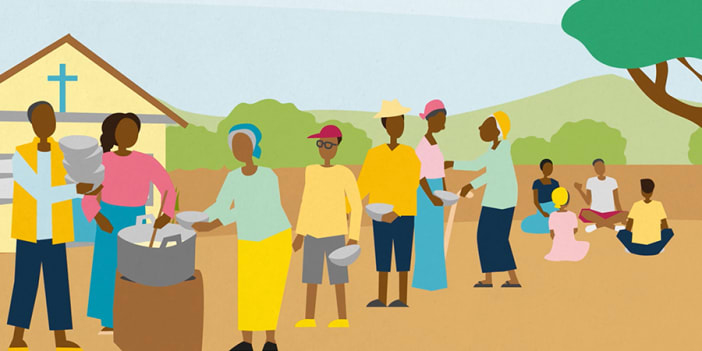Although protecting people’s lives in disasters is top priority, protecting their livelihoods is nearly as important. If people lose the ability to feed themselves, their long-term survival is in question, and they will be much more vulnerable to the next disaster.
First we need to understand what people’s livelihoods are – all the ways they produce food, earn an income and secure the necessities of life. Then in discussion with the community, we can look for ways to:
PROTECT VULNERABLE LIVELIHOODS
In Bangladesh, people who live on river islands have come up with many ingenious solutions to protect their livelihoods during floods. One is the “floating garden.” Instead of cultivating vegetables on the ground, they grow them on a platform made of water hyacinth plants stacked together and covered in dirt. During a flood, the platform floats on the water and the vegetables survive. You can read more about floating gardens in Footsteps 77.
In Malawi, small farmers are very vulnerable to drought. Tearfund partners have taught them soil and water conservation, including applying manure, composting, water-harvesting, agro-forestry and building contour ridges across the slope to slow down water run-off. These techniques reduce erosion and help the soil hold more water, allowing more crops and farmland to survive dry spells.

Tearfund Partner, Eagles, works with local people in Malawi to improve farming practices. Photo: Marcus Perkins/Tearfund
IMPROVE DISASTER RESILIENCE
When we discuss disasters with communities, they will often be able to identify a particular livelihood that is less vulnerable to disaster than others. We can then try to help them to make that livelihood more productive.
In northern Afghanistan, two severe droughts in the past four years have hit farmers hard. But there was one important local industry that did not depend on rainfall: carpet weaving. The yarn that goes into Afghan carpets is spun by local women from imported wool. Even in a drought year, wool spinning can provide significant income in these northern villages.
In this case, Tearfund looked for ways to strengthen that disaster-resilient livelihood and successfully introduced foot-pedalled spinning wheels in areas where the women had previously spun wool by hand. The wheels helped women produce four times as much yarn to sell to local vendors.










